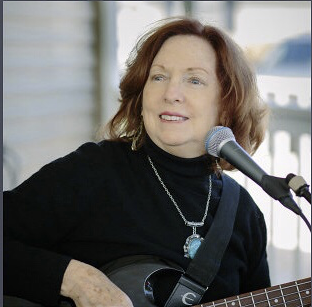
By Judi Neal, Founder of Edgewalkers International
When someone asks me about my spiritual practice, I answer that my spiritual practice is music. Playing an instrument and singing is one of the easiest ways for me to get out of my head and to be open to the Divine. I have other practices such as prayer, contemplation, yoga, and spending time in nature, but music is really core for me. I call it a short-cut to the soul.
Every religious tradition has spiritual practices connected to music. For example, there are Christian hymns, Jewish cantors, Buddhist chants, the Vedic kirtan practice of call and response, the songscapes of Australian aboriginals and Native American peoples. Music helps us to experience and celebrate the sacred.
During the Taliban rule in Afghanistan between 1996 and 2001, music was banned. If you want to break the spirit of a people, take away their music. Another way you can try to break the spirit of a people is you disempower their women, which seems to be happening in Afghanistan right now as the Taliban begin to rule again.
Music can also be a part of political resistance. My friend Pedro grew up in Portugal under the Salazar dictatorships. Pedro’s parents were part of the underground resistance and his family hosted secret meetings to help organize the resistance to the authoritarian government. These meetings were always accompanied by folk music that inspired the resistors to stay strong and to have courage, much like the Civil Rights movement used songs like “We Shall Overcome.” Pedro was told as a little boy to never sing these songs at school or in public because this could get his parents killed. That gives you some sense of the power of music to nurture the human spirit, and explains why authoritarian leaders fear it’s power.
I used to facilitate a “Spirit at Work” meeting at the University of New Haven. One month I invited everyone to bring in a recording of a piece of music that touched their soul. Each person said something about what that music meant to them and then we listened to their song. Something very tender happened in that meeting as the group connected with each other on a deeper level. It was the combination of the personal story and sitting together in appreciative silence that connected us. Some people decided that they were going to start listening to music through headphones each day. Others said they were going to go back to their teams to create playlists of music that everyone agreed upon that could be played softly in the background in their work areas. Music brought a little bit of the sacred into their workday.
Music can be healing. At the beginning of the pandemic, Yo-Yo Ma began posting Songs of Comfort and Hope on Facebook. The first song he posted was Antonin Dvorak’s “Going Home.” I burst into tears when I heard it. In the midst of isolation and fear, Yo-Yo Ma showed that he cared and that he could offer something beautiful in a time of darkness. I can’t play anything as beautiful as “Going Home,” but playing my own music is healing nonetheless.
My primary instrument is electric bass guitar, and I feel such a powerful resonance when I play these deep sounds. I think it might be a way for me to integrate the masculine and the feminine. I have a soprano voice, and I feel the vibrations of my voice in my head. When I play the bass, I feel the vibrations in my whole body, and I feel a sense of power that I don’t experience in any other way. It feels integrative in so many ways. Bass playing is not a solo activity, and I really feel my spirit soar when I play my instrument in my all-woman band, She’s Us. There is something about losing oneself in the co-creation of music with other people.
Writing songs is also a spiritual practice for me. When I sit down to write a song, I start by being in silence and asking Source, God, the Muse or whatever you want to call it, to allow me to be a channel for creativity. I search my heart for what wants to be expressed and I just start writing down whatever words come, or I play my guitar for whatever melody wants to be expressed. As I play or sing, more and more details of the song become clear and I am able to turn the song into something I hope will have meaning for others. Rumi wrote about being a hollow reed for God to come through. I keep that image in mind as I create.
Music is my spiritual practice. I encourage you to think of ways you can bring more of the sacred into your life and work through music. Please feel free to share in the comments below ways in which you currently use music as a spiritual practice, or ways you could use music as a spiritual practice in the future.

Thank you for this article. i learnt to read music and play a piano when i was a child but it has been missing from my life for sometime. As i was reading this using you tube i started to listen to music and i agree i can feel it throughout my body and want to hum along. i am looking forward to bringing more music into my life.
Jenny